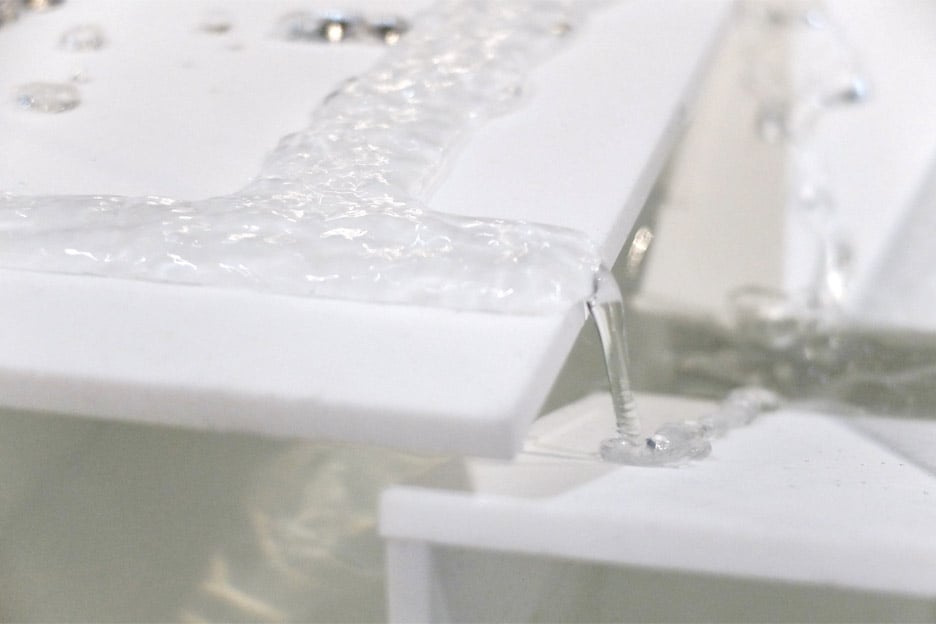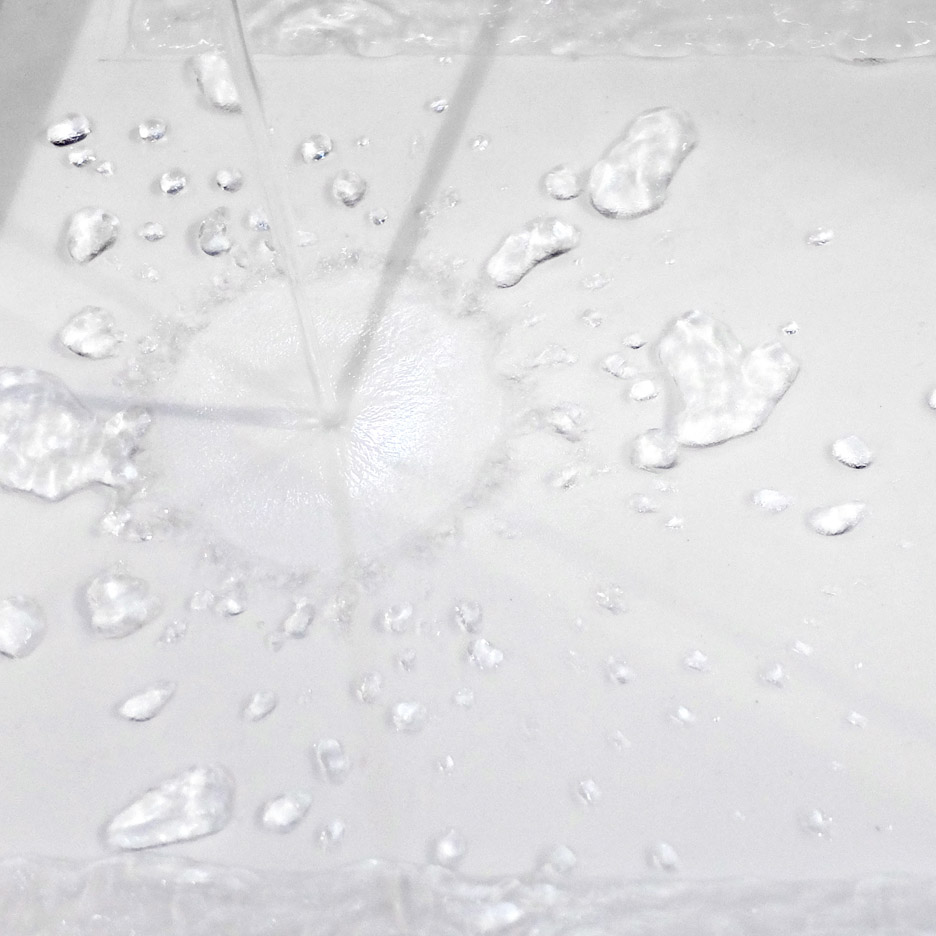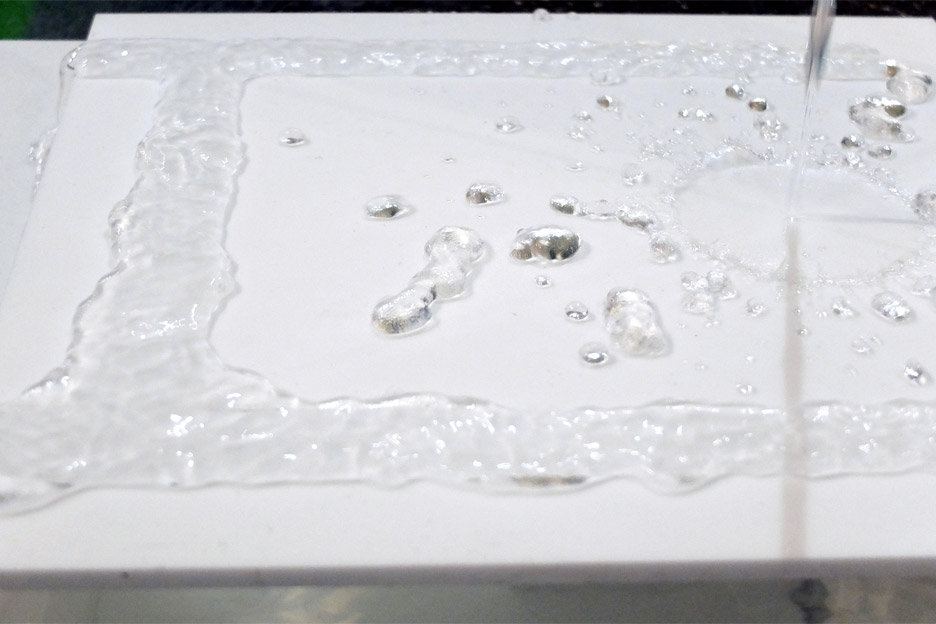Arthur Carabott's Superhydrophobic Fountain causes water to move in unusual ways
Water flows in seemingly impossible ways across this liquid-resistant fountain by London designer Arthur Carabott (+ movie).
Carabott applied a superhydrophic coating to a series of laser-cut acrylic sheets to achieve the effect.

Superhydrophic – or ultrahydrophobic – surfaces are defined by their extreme resistance to water, like those of a lotus plant. When water touches them, droplets bulge upwards so they appear nearly spherical.
Carabott discovered that as well as the added height, the Rust-oleum NeverWet Multisurface coating made the water move faster and travel in unusually narrow streams. He left parts of the surfaces untreated for comparison.
When water falls from a 3D-printed spout holder onto the fountain's almost horizontal sheet, it collects as large droplets, before running into streams. These flow off onto two angled elements below, before cascading into a final pool at the base.

"The fountain creates surprise by playing with our expectations of how water moves," said Carabott.
"[It is] inspired by the Japanese mathematician Kokichi Sugihara's optical illusions that interpret Escher-like two-dimensional line drawings into three-dimensional objects to create motions that appear impossible."
The newly developed superhydrophobic coating creates a nanoscopic layer over existing surfaces, repelling water as well as dirt.

Designers have been experimenting with different applications for the technology. Swedish studio Tomorrow Machine used it to make cellulose plates and dishes that never need washing up.
Carabott created the Superhydrophobic Fountain during a 3D Workshop class taught by architect Jay Levy at New York's Pratt Institute earlier this year. The design was then presented the 2016 Work-In-Progress show at London's Royal College of Art, where Carabott is currently enrolled in the Global Innovation Design masters course.

He previously worked as an interaction designer and programmer on Asif Khan and Pernilla Ohrstedt's Coca-Cola Beatbox Pavilion at the London 2012 Olympics, which could be played like a musical instrument.
The designer was also involved in other projects with Khan's studio, including Radiant Lines for Melbourne's Federation Square and MegaFaces for the Sochi Winter Olympics.